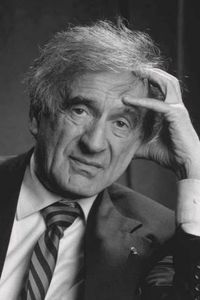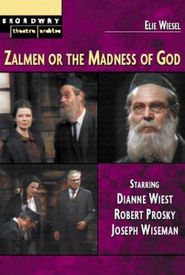Eliezer Wiesel, a distinguished individual of Romanian birth and American citizenship, was a multifaceted personality who made a profound impact in various spheres of life. Born on September 30, 1928, he left an indelible mark as a writer, professor, political activist, Nobel laureate, and most poignantly, a survivor of the Holocaust. Throughout his illustrious career, Wiesel authored an impressive 57 books, predominantly in French and English.
His magnum opus, the memoir "Night", stands out as a testament to his remarkable resilience and the indelible scars of his experiences as a Jewish prisoner in the notorious Auschwitz and Buchenwald concentration camps. This powerful and poignant work has left an enduring legacy, serving as a poignant reminder of the atrocities committed during the Holocaust and the importance of preserving the memories of those who suffered through it.
Elie Wiesel, a renowned professor of humanities, held a prestigious chair at Boston University, which recognized his profound impact by establishing the Elie Wiesel Center for Jewish Studies in his honor. As a champion of Jewish and human rights, he played a pivotal role in the establishment of the United States Holocaust Memorial Museum in Washington, D.C., a testament to his unwavering commitment to preserving the memory of the Holocaust and promoting tolerance and understanding.
Wiesel's activism extended far beyond the realm of Jewish and human rights, as he was a vocal advocate for oppressed groups in various regions around the world. He lent his voice to campaigns for justice and equality in South Africa, Nicaragua, Kosovo, and Sudan, using his platform to raise awareness and mobilize support for those struggling against oppression.
Throughout his life, Wiesel remained a steadfast defender of human rights, refusing to remain silent in the face of injustice. He publicly condemned the 1915 Armenian genocide, acknowledging the atrocities committed and the need for recognition and accountability. His unwavering commitment to human rights and social justice inspired countless individuals and left a lasting legacy that continues to resonate today.
Elie Wiesel, a renowned Jewish-American writer, professor, and Holocaust survivor, received the Nobel Peace Prize in 1986, with the Norwegian Nobel Committee bestowing upon him the prestigious honor, describing him as "a messenger to mankind" in recognition of his extraordinary work.
The committee's citation highlighted Wiesel's remarkable efforts in grappling with his own harrowing experiences during the Holocaust, as well as his unwavering dedication to the pursuit of human rights, and his tireless work in the cause of peace, which spanned a lifetime of advocacy, education, and activism.
Wiesel's Nobel Prize served as a powerful testament to his profound message of peace, atonement, and human dignity, which resonated with people around the world, inspiring generations to strive for a more just, compassionate, and peaceful world.
As a survivor of the Nazi concentration camps, Wiesel's own experiences had given him a unique perspective on the horrors of war, genocide, and the importance of preserving human life, dignity, and freedom.
Throughout his life, Wiesel remained committed to sharing his story, using his platform to raise awareness about the importance of human rights, the dangers of anti-Semitism, and the need for international cooperation to prevent future atrocities.
His Nobel Prize was a fitting recognition of his tireless efforts to promote peace, understanding, and reconciliation, and it served as a powerful reminder of the enduring power of the human spirit to overcome even the darkest of times.
Elie Wiesel, a renowned and esteemed individual, served as a founding board member of the New York Human Rights Foundation, a position he held with dedication and commitment throughout his illustrious life.
As a prominent figure in various international organizations, Wiesel worked tirelessly to advance the causes of human rights and social justice, earning widespread recognition for his unwavering efforts to promote these essential values.
Elie Wiesel, a renowned figure, was born in the small town of Sighet, situated in the heart of Romania. Within the confines of his childhood home, a unique linguistic landscape prevailed, with Yiddish, German, Hungarian, and Romanian being the primary languages spoken. This multilingual environment would later influence his literary pursuits and cultural perspectives.
Wiesel's parents, Sarah Feig and Shlomo Wiesel, played a pivotal role in shaping his worldview. They nurtured in him a strong sense of humanism, encouraging him to explore the richness of Hebrew literature and to develop a deep appreciation for the written word. His father, Shlomo, embodied the qualities of reason and intellect, while his mother, Sarah, was a beacon of faith and spiritual guidance.
This dichotomy between reason and faith would become a recurring theme throughout Wiesel's life and works, as he grappled with the complexities of human existence and the search for meaning in the face of adversity.
Elie Wiesel's ancestral lineage can be traced back to Rabbi Schlomo Yitzhaki, a renowned Jewish scholar and commentator, who is famously known as Rashi. Wiesel's family tree also connects him to Rabbi Yeshayahu ben Abraham Horovitz ha-Levi, a figure notable in Jewish history.
Wiesel was born into a family with three siblings, including his sisters Beatrice and Hilda, and his sister Tzipora. Unfortunately, only Beatrice and Hilda survived the devastating events of World War II, and they later made the difficult decision to leave their homeland and start anew in North America.
Tragically, Wiesel's sister Tzipora, along with his brother Shlomo and sister Sarah, did not survive the Holocaust, a catastrophic period in human history that resulted in the loss of millions of innocent lives.





















